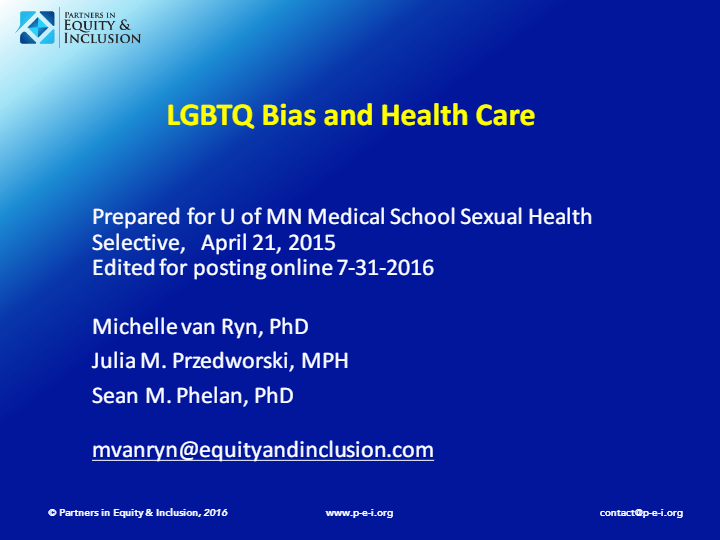Paved with good intentions: do public health and human service providers contribute to racial/ethnic disparities in health?
Abstract: There is extensive evidence of racial/ethnic disparities in receipt of health care. The potential contribution of provider behavior to such disparities has remained largely unexplored. Do health and human service providers behave in ways that contribute to systematic inequities in care and outcomes? If so, why does this occur? The authors build on existing…






